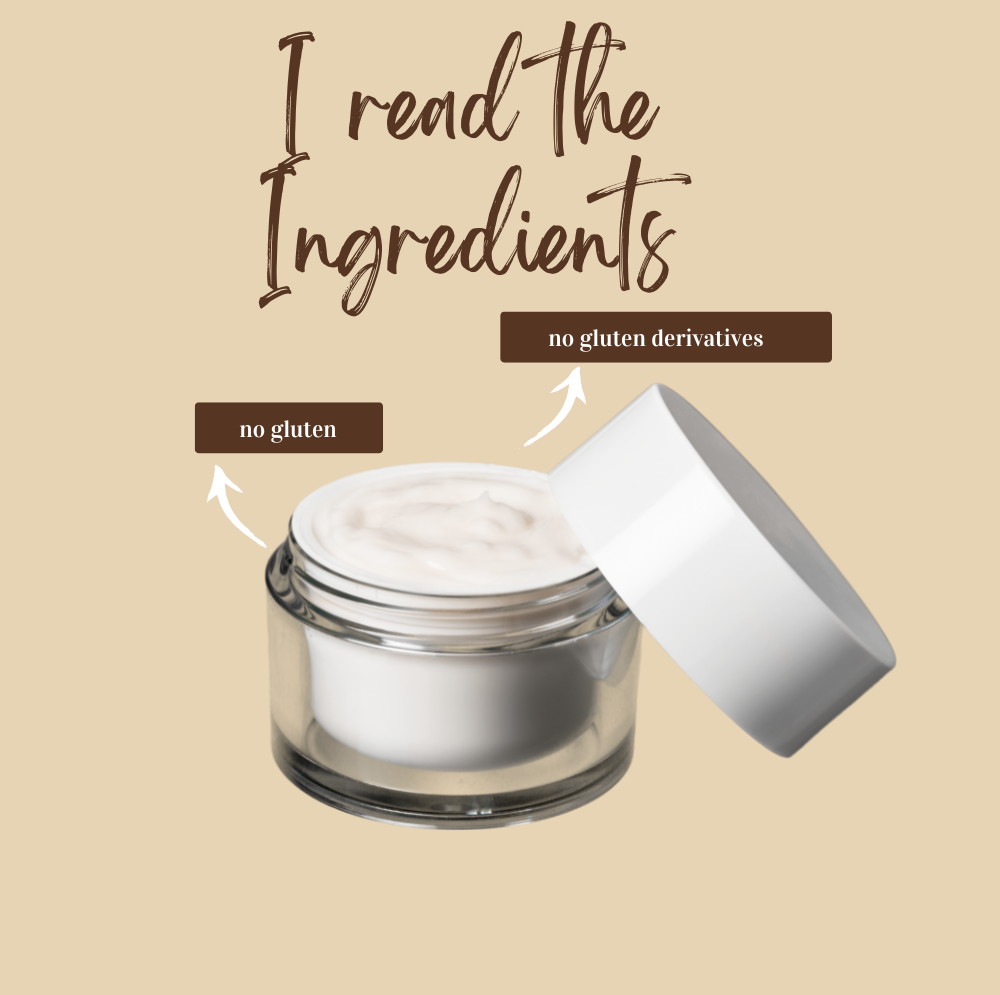Understanding Celiac Disease and Gluten Sensitivity
Celiac disease affects the digestive system but can have systemic repercussions. When someone with celiac disease consumes gluten—a protein found in wheat, barley, and rye—their immune system responds by attacking the lining of the small intestine. This can lead to a myriad of health issues, ranging from digestive problems to neurological complications. Gluten sensitivity, while less severe, can also cause discomfort and health issues.
Why Gluten-Free Skincare Matters
1. Avoiding Hidden Gluten
Gluten can be found in numerous skincare products, from lotions and creams to lip balms and shampoos. Although the likelihood of gluten in skincare products being absorbed through the skin is low, the risk of accidental ingestion is real—especially with products applied near the mouth or on hands. For individuals with celiac disease or gluten sensitivity, even small amounts of gluten can trigger symptoms. By opting for gluten-free skincare, you eliminate this hidden risk.
2. Preventing Skin Reactions
Some people with celiac disease or gluten sensitivity may experience topical reactions to gluten-containing products. These reactions can include rash, itching, or eczema flare-ups. Gluten-free skincare products can help prevent such reactions, ensuring that your skin remains as healthy and comfortable as possible.
3. Enhanced Product Safety and Awareness
Choosing gluten-free skincare products encourages a deeper awareness of product ingredients and safety. It prompts individuals to research their skincare choices, leading to better-informed decisions about what they put on their skin. This vigilance can extend to avoiding other potentially harmful ingredients, making gluten-free skincare a gateway to cleaner, safer skincare routines.
4. Peace of Mind
For those with celiac disease, the constant vigilance required to avoid gluten can be mentally exhausting. By choosing gluten-free skincare, individuals can alleviate the worry of accidental gluten exposure through their skincare routine. This peace of mind is invaluable, allowing individuals to feel safer and more relaxed in their daily lives.
Making the Switch to Gluten-Free Skincare
Transitioning to gluten-free skincare doesn’t have to be overwhelming. Start by checking the labels of your current skincare products for gluten or wheat-derived ingredients. Many companies are becoming more transparent about their formulations, with some offering dedicated gluten-free lines. When in doubt, don’t hesitate to contact manufacturers directly to inquire about their products.
It’s also worth exploring brands that specialize in gluten-free skincare. These companies understand the needs of individuals with celiac disease and gluten sensitivity, ensuring their products are safe and effective.
Conclusion
For those with celiac disease, adopting a gluten-free skincare routine is more than a preference—it’s a step towards ensuring their overall health and well-being. While the skin may not directly absorb gluten in a way that triggers celiac disease symptoms, the risk of accidental ingestion and topical reactions makes gluten-free skincare a prudent choice. Beyond the immediate health benefits, opting for gluten-free skincare promotes a more mindful approach to product selection, emphasizing the importance of understanding and controlling what we expose our bodies to. In a world where health and wellness are paramount, making the switch to gluten-free skincare is a simple yet significant way to support your journey with celiac disease.
